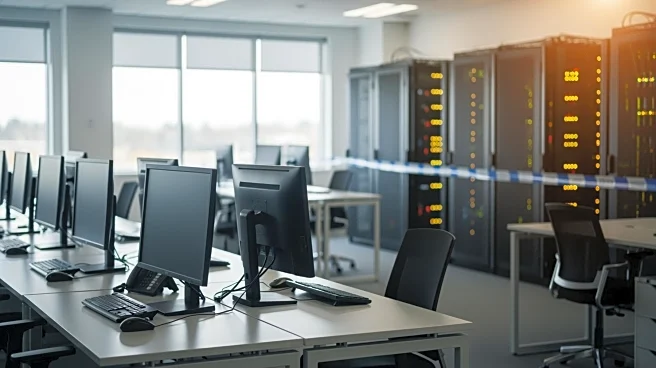Rapid Read • 8 min read
The introduction of generative AI is beginning to affect the American labor market, particularly impacting young tech workers, according to Joseph Briggs, a senior global economist at Goldman Sachs. Despite most companies not yet deploying AI in production, there are signs of a hiring slowdown in the technology sector, which has traditionally seen consistent growth over the past two decades. This pullback is notably affecting younger employees, with unemployment rates among tech workers aged 20 to 30 increasing by 3 percentage points since the start of the year. The rise of AI models like OpenAI's ChatGPT has prompted industries to adapt, with companies such as Alphabet and Microsoft reporting that AI is producing a significant portion of code for projects.
AD
The impact of AI on the labor market is significant as it suggests a shift in employment trends, particularly for young tech workers whose roles are more susceptible to automation. This development could lead to increased productivity and shareholder enrichment but also poses risks of job displacement. As AI continues to advance, it may redefine job roles and skill requirements, potentially leading to broader economic implications. Companies are increasingly relying on AI for routine tasks, which could reshape workforce dynamics and necessitate new strategies for employment and training.
As AI technology continues to evolve, companies may further integrate AI into their operations, potentially leading to more widespread job displacement. This could prompt discussions among policymakers and industry leaders about the need for retraining programs and educational initiatives to prepare workers for new roles. The ongoing adaptation to AI may also influence future hiring practices and workforce planning, as businesses seek to balance automation with human expertise.
The ethical and cultural implications of AI-driven job displacement are significant, raising questions about the future of work and the societal impact of automation. As AI becomes more prevalent, there may be increased scrutiny on how companies manage workforce transitions and the role of AI in shaping economic inequality. Long-term shifts in employment patterns could also influence public policy and labor rights discussions.
AD
More Stories You Might Enjoy











